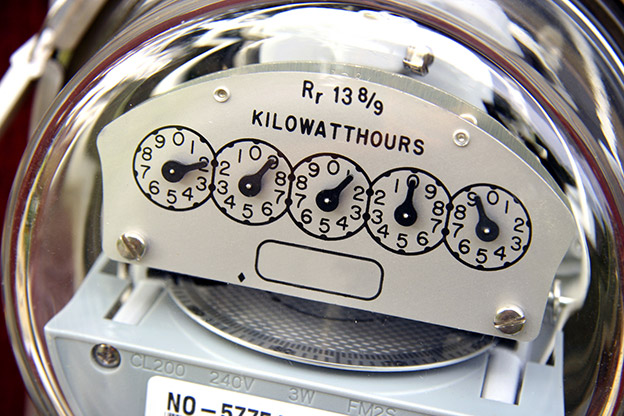
by Dean Mance | Feb 3, 2015 | Uncategorized
If a property has had the power disconnected for more than 6 months, TasNetworks require a safety inspection to be carried out before they will reconnect.
This little known requirement often comes as a surprise to the new occupants moving into a property that has been vacant for a while.
Everything is arranged, keys handed over, furniture moved. And then they phone TasNetworks to get the power on.
The rule is strictly enforced. No power reconnection after 6 months without a safety inspection by a licenced electrical contractor.
The reasoning is, if a property has been disconnected for so long, a safety check is required to make sure someone hasn’t pulled down a couple of light fittings and left bare wires hanging out of the ceiling.
Or maybe the installation has deteriorated with no one to keep an eye on it.
Most of the safety checks we do are emergency jobs done at short notice as nobody realised a check would be required.
Occasionally a client will spend a night or two in their new home without power. If the check was done on a Friday afternoon, maybe their power won’t be connected until the next Monday.
The required safety checks are quite comprehensive. They ensure that the electrical system is safe to be energised. Any faults found during the testing must be fixed before power can be restored.
If you are moving into a property that has been disconnected for more than 6 months, be aware that a safety check will be required and make sure you allow for that in your plans.
For 6 month electrical safety inspections in the Launceston area please phone Mance Electrical on 6331 4711.
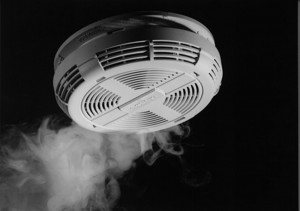
by Dean Mance | Oct 27, 2014 | Common Repairs, Keep Your Family Safe, Uncategorized
The recent 60 Minutes story on smoke detectors has prompted a number of clients to ask us about the safety and effectiveness of their existing smoke alarms.
The story featured fire safety expert David Isaac, who expressed concern that some smoke detectors were too slow to react and would not allow the occupants of a home enough time to safely escape in the event of a fire.
There are two types of smoke detector available, Ionisation and Photoelectric, and they both detect fires differently.
The ionisation type is better at detecting fast developing fires with lots of flames, while the photoelectric type is better at detecting the slow, smouldering type of fire which can produce a lot of smoke before there are any flames.
Ionisation types are also more susceptible to false alarms from burnt toast and even bathroom steam. Unfortunately this often leads to people disabling them, with sometimes tragic consequences.
While both types of smoke alarm will detect a fire, David Isaac believes the photoelectric type provides better protection.
By the time a smouldering fire progresses to the flaming stage it may have produced quite a lot of smoke, already incapacitating the sleeping occupants of a home, or making it very difficult for them to escape the burning building.
Both types of smoke alarm comply with Australian Standard AS3876, so why do over 90% of Australian homes have an ionisation type detector?
Until quite recently, photoelectric smoke alarms were three or four times the price of an ionisation type detector. When faced with spending either $29 or $89 per detector most consumers have selected the cheaper option.
So, why don’t they make a smoke alarm that combines both methods of detection?
Actually there are dual mode smoke alarms available, however at the moment they are all 9 volt battery models. We have not yet seen a 240 volt version of the dual sensor smoke alarm.
It is important to note, that these 9v battery operated dual mode alarms do not comply with current Tasmanian regulations for smoke detectors in rental properties and new homes. In these properties your smoke detector, (ionisation or photoelectric) must be 240 volt hard wired or have a 10 year lithium battery.
If you have a smoke detector in your home it’s most likely the ionisation type, so what should you do?
No matter what type of smoke alarm you have it only provides protection if it’s in working order so you should change the batteries and test your alarms regularly, as per the manufacturer’s instructions.
Photoelectric smoke alarms are now much cheaper than they used to be so if you are considering replacing your old ionisation models please give us a call to obtain an obligation free quotation.
Phone Mance Electrical on 6331 4711.

by Dean Mance | Oct 14, 2014 | Dodgy Installations, Keep Your Family Safe, Uncategorized
We had a call from a guy who had installed his own exhaust fan and couldn’t get it to work.
The client had been to a major hardware store and purchased a fan, some cable and a switch. He cut a hole in the ceiling and fitted the fan, connected the wire to the fan and ran the cable down the wall and connected it to the switch.
He then stood in his bathroom, flicking the switch and wondering why the fan wouldn’t work. It didn’t work because the cable only ran between the fan and the switch, there was no connection to any power circuit.
The client was extremely embarrassed when we explained the problem and in this case there was no immediate danger as there was no power connection involved.
Although it’s an amusing story it highlights the lack of understanding of the average handyman (yes, it’s always a man) when dealing with electrical work.
Do ItYourself electrical work is always non compliant in some way and is often little more than a trap set to catch the tradesman who is unfortunate enough to follow up such work.
Compared to the cost of losing your home in a fire and having no insurance, the small amount of money this client tried to save would be totally insignificant.
Those most at risk from DIY electrical work are the family members who live in the home. Doing your own electrical work is illegal. Play it safe and get it done by a properly qualified person.
If you have any doubts or concerns about work that may have been carried out at your property please give us a call on 6331 4711 or send us an email and we’d be happy to do a quick check and advise on the condition and safety of your electrical installation.
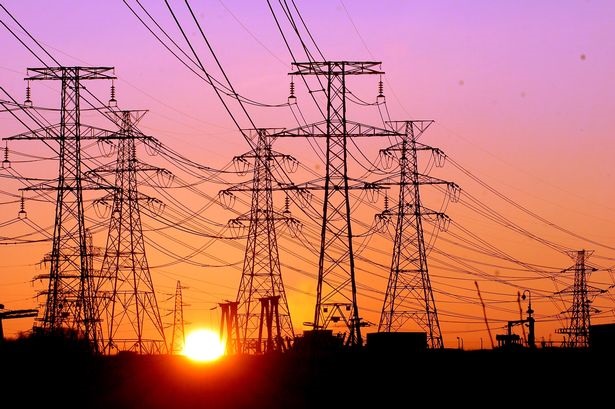
by Dean Mance | Sep 22, 2014 | Reduce Your Power Bill, Uncategorized
The Carbon Tax Repeal Act took effect from 1st July 2014 and consumers should now be receiving the first round of power bills at reduced rates.
Aurora Energy has lowered power prices by 7.8%. It’s only a small reduction but the move could see savings of around $250 a year for the average family.
This is probably a once off reduction and prices will rise again, due to the usual factors.
It’s a good opportunity to consider investing the savings from your power bill in an area that will provide future energy savings such as extra insulation or LED lighting or solar hot water.
Money spent on reducing your energy consumption usually pays dividends for many years, as the benefits continue long after the initial expense.
The money saved from implementing one energy efficiency measure can help pay for the next energy reducing investment, and those combined savings help pay for the next one, and so on. This is a great strategy if you are planning to stay in your current home for a number of years.
There are plenty of ways to reduce your energy consumption that won’t cost you a cent. We have created a guide that details of 43 different ways to reduce your power bill, including many no cost and low cost ideas. Go to www.savepowersavemoney.com.au to download the free report.
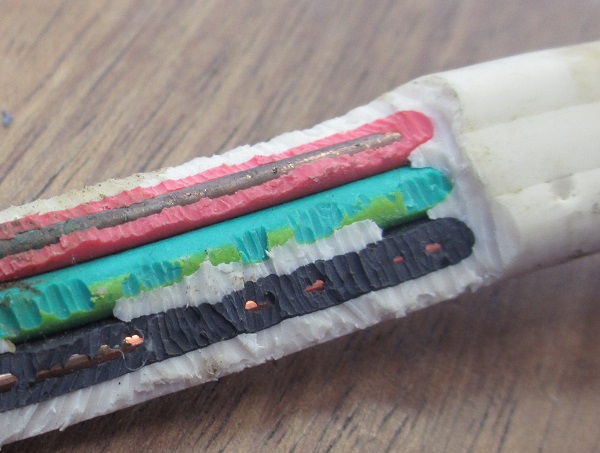
by Dean Mance | Sep 4, 2014 | Common Repairs, Keep Your Family Safe, Save Money, Uncategorized
Unfortunately rats and mice, and even possums love to chew electrical cable, and yes it is possible for that sort of damage to start a fire.
These days cable is manufactured with an additive in the plastic that is supposed to deter rodents from chewing, but it doesn’t seem to be completely effective. It pays to keep the ceiling areas and underneath your house free of mice and rats if you want to avoid rodent damage to your cables.
Traps and bait are effective in controlling rodents and you should also do a quick check of the visible and accessible cable and junction boxes whenever someone gets into the ceiling space.
Remember, it’s a good idea to turn off the power before getting into any ceiling space.
Earth-leakage circuit breakers, (safety switches), are a good way to prevent problems caused by rodents. A safety switch won’t prevent a mouse from chewing your cables, but if that sort of damage does occur, a correctly operating safety switch will trip out before shorting cables can start a fire.
Old fuse boards without safety switches don’t provide the same protection, and an exposed and arcing cable can start a fire.
Things to watch for include the usual signs of rats and mice, as well as chewed cables and junction boxes and buzzing noises inside wall cavities. Particularly buzzing noises that start or stop whenever you turn on a light switch.
As usual, if in doubt, please give us a call on 6331 4711 and we’ll be happy to do a quick check to make sure your wiring is in a good safe condition.
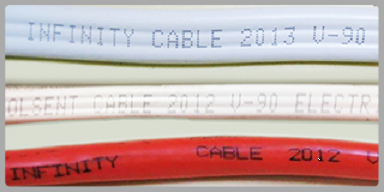
by Dean Mance | Aug 28, 2014 | Dodgy Installations, Keep Your Family Safe, Uncategorized
The ACCC has announced a cable recall of Infinity brand electrical cables due to the fire and electrocution risks posed by the sub-standard product.
The poor quality plastic insulation deteriorates rapidly, becoming brittle and susceptible to falling apart if disturbed.
Mance Electrical has never purchased this brand of cable so our clients can be assured there is none of this potentially dangerous product installed in their premises.
The cable was supplied through various hardware outlets between January and October 2013 and could have been purchased by other electricicans or even home owners themselves.
(That’s a separate issue in itself – It’s illegal to do your own electrical work, why can anybody just walk into a hardware store and buy a power point and a few meters of cable?)
Mance Electrical purchases cable from electrical wholesalers who have never stocked this particular brand.
If you are concerned that you may have some of this cable in your home or business, call your electrician and ask them to check their records, or arrange a visit to check the existing installation. There is probably only a small amount of this cable installed in Tasmania, however if you are affected, you may be able to claim the cost of repair or replacement from the cable supplier.
For further information, see the ACCC website, which has a frequently asked questions section on Infinity Cables, or give us a quick call on 6331 4711.






